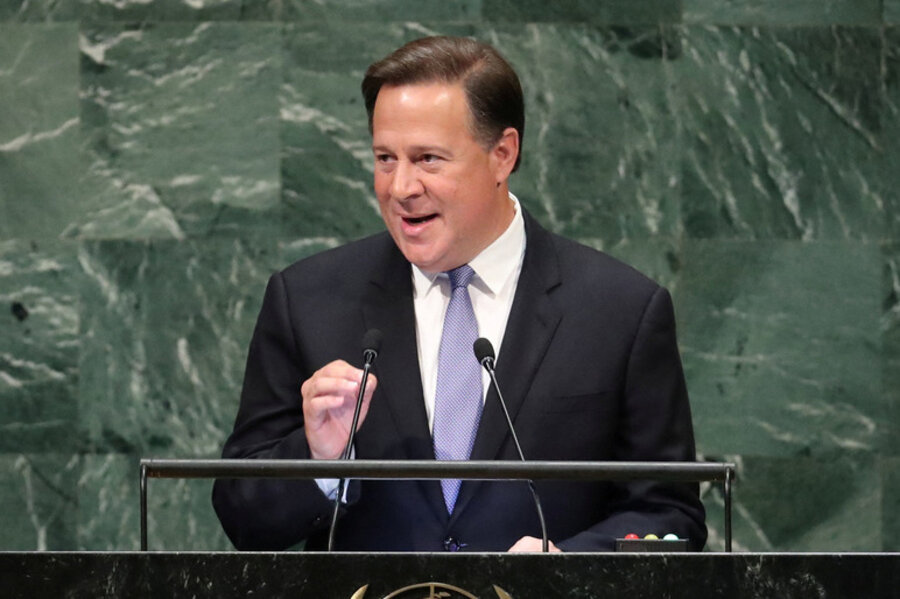Honest governance finds a footing in Latin America
A year ago, Panama was caught in its worst social crisis in decades, stoked by widespread discontent over rising costs and unemployment. People felt “deeply offended and humiliated,” one diplomat noted, by “corruption and a lack of empathy [from politicians] during these difficult times.”
Now the slender country bridging the Americas may be recharging its currencies of trust. A court in Panama yesterday sentenced former President Ricardo Martinelli to more than 10 years in prison for money laundering. The penalty has significant ramifications in a country striving to end a long history of corruption. Just last month, Mr. Martinelli won the nod to lead his party into next year’s elections. If the sentence is upheld on appeal, he will be barred from running.
The court’s decision marks a rare moment of judicial independence and reinforces legal reforms helping to change the country’s reputation as an international haven for graft. At a time when most Latin American countries have lost ground in global measurements of democracy, Panama has continued a three-year run of progress countering corruption.
The country was the most improved in the latest annual Capacity to Combat Corruption Index, published last month by Americas Society/Council of the Americas. The Financial Action Task Force, a global watchdog on money laundering and terrorism finance, has meanwhile indicated that it may soon remove Panama from its list of countries requiring “increased monitoring.”
Reforms tell part of the story. The country has adopted new rules of reporting for senior government officials to identify potential conflicts of interest. It has also boosted its cooperation with international partners like the United States in countering narcotics trafficking and money laundering.
But its real gains may be in softer shifts. Following the unrest last year, President Laurentino Cortizo established a citizens commission on corruption to empower public reporting of graft. Since his election in 2019, he has also quietly shifted the gender balance in the judiciary, nominating women to six vacancies (out of nine seats total) on the Supreme Court. Under a new system, judges are chosen by merit. A study by the World Justice Project showed that the judiciary, long sullied by corruption, is now the most trusted public institution.
Mr. Cortizo, who is barred by the constitution from seeking reelection next year to a consecutive term, has – by his count – launched 624 community development projects during his term. The projects include building schools and health care centers, investing in local agriculture, and seeding small businesses. These may not have an explicit purpose of combating corruption. Yet they are strengthening civic bonds. While only 25% of Panamanians report having a lot of trust in national public officials, the World Justice Project survey found 51% expressed a lot of trust in their fellow citizens.
“Our challenge is to make a prosperous country based on law and order, but – above all – fair,” the president promised in his inaugural address.





